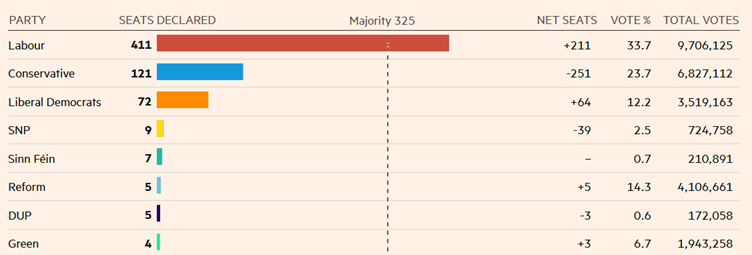Political regime change
Beyond the busy election calendar, structural changes in politics and policy are underway across advanced economies – with material economic consequences
It has been a busy week or so in politics around the world. Last Thursday’s UK election delivered a landslide victory for the Labour Party (411 seats v 121 for the Conservatives), supported by widespread tactical voting: Labour’s vote share was 34% v 24% for the Tories.
This provides a stable basis for governing, and the new government has started well in terms of policy announcements, Ministerial appointments, as well as tone. This is important because the UK faces deep challenges; the UK has been the weakest economic performer across the G7 since Covid.
This political stability contrasts with France. Last Sunday’s second round of voting in the legislative elections delivered a surprise result, with the left wing grouping (Nouveau Front Populaire) taking first place (although not a majority), followed by Mr Macron’s Ensemble, with Ms Le Pen’s Rassemblement National in third place (having threatened to place first). This was the result of the left wing grouping coming together, a…




